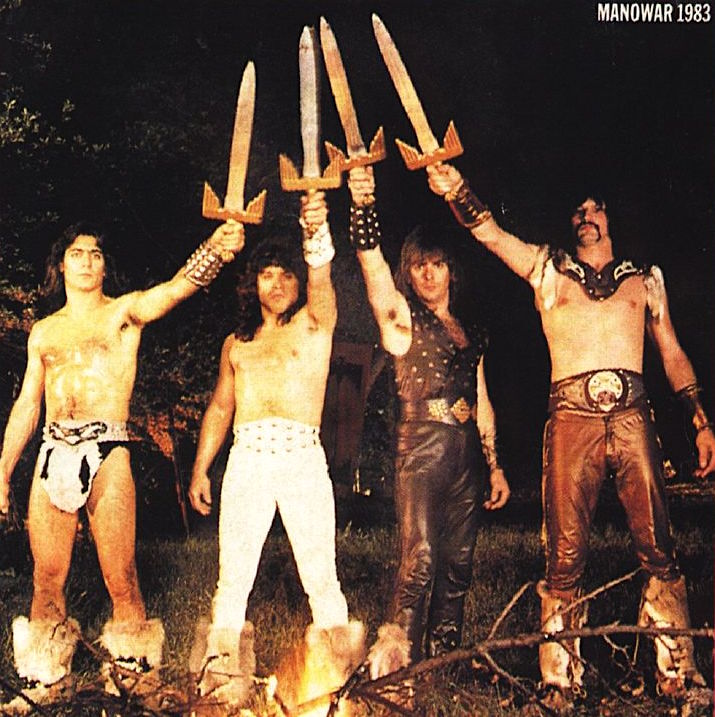
1. It’s getting to the point where NPR’s Invisibilia should just give up the ghost and rebrand themselves as Grace in Practice: The Podcast. Every time I think this second season couldn’t get any more relevant, they come out with an episode like “Flip the Script”, essentially an hour-length exploration of the psychology of imputation.
They open with a jaw-dropping story of a backyard BBQ in DC being interrupted by a stranger wielding a gun, threatening harm unless he’s given money, pronto. The couples in attendance don’t have any cash on them, and before they panic, one of the ladies offers the intruder a glass of wine and some food. The evening ends a few hours later in a group hug. To explain what happened, the hosts interview a professor at Michigan State, who tells them about the magic of “noncomplementary behavior”, something that will sound very familiar to those versed in the g-word. Host Lee Spiegel explains:
The basic idea is that people naturally mirror each other. So when someone is hostile to you, you are typically hostile back. Warmth begets warmth. And breaking this pattern – say, being really warm to somebody after they’ve been incredibly hostile to you – that is noncomplementary behavior… it’s incredibly hard to do. But people do manage to sometimes behave in noncomplementary ways. And when they do, it often completely shakes up a situation – flips the script. It happens between people. But also, it can happen on a bigger level.
[Professor HOPWOOD responds] “The reason, for example, that we admire people like Gandhi and Martin Luther King Jr. is because they were able to maintain a sort of warmth and integrity in the face of people who were being cruel to them.”
I’m sure we can think of another name to add to that list. Yet what comes next is what got me. Host Hannah Rosin interviews a couple of Danish cops, from the town of Aarhus, who were courageous/reckless/desperate enough to put “noncomplementary behavior” into practice in dealing with the Muslim young men in their community who were becoming radicalized in droves and disappearing to Syria. Parents are going nuts, and the police are under increasing amounts of pressure to bring these (25 and counting) boys home. So they contact the local mosque, which appears to be the hub of radicalization. The mosque leaders, it turns out, are just as much at their wits’ end as the cops, claiming that the boys are being ‘turned’ via online communities rather than flesh-and-blood ones.
What happens next is what’s so surprising. The spokesperson for the mosque implores the copes not to come down hard on the boys, but instead to do their best to understand why each one went to Syria before labeling them a terrorist or a criminal. He goes even further, actually. He encourages the cops not only to treat each of the missing young men like human beings, but like somebody who has done something they can be proud of, i.e. the opposite of what conventional wisdom and jurisprudence would say. Miraculously enough, the police went for it–whole hog. Rosin comments:
Love and caring – for most Western countries, these are not among the weapons we use to fight terrorism. Even considering it would be political suicide. [Officer] Thorleif wasn’t totally convinced, but he let [mosque spokesperson] Fadi’s ideas bounce around in his head… Instead of arresting people at the airport who are coming back from Syria, they would just call them up and invite them to the office.

It’s a gamble, and yet… it works. Once word gets out that the police are meeting them with open arms, and actively trying to help them (getting them involved with mentors, etc), almost all of the boys come back (18 to be exact), along with 330 other budding radicals. Amen to that.
Definitely listen to the whole episode if you have the chance. And for some thoughts on where the psychology of imputation differs from the theology of imputation, click here.
2. That story was ringing in my ears when I read David Brooks’ timely editorial “Hillary, This Is Why Democrats Are Still Struggling”, in which he lists three main lessons from which he feels the freshly minted DNC nominee could benefit (e.g. that not all non-materialistic motivations are 100% fear-based), the last of which I dare say we could all take to heart candidates or not:
You’re going to have to answer hatred with love. Your tendency so far in your career has been to answer hostility with distrust, and secretiveness… The confident move is to break out of the emotional bunker with vulnerability. The sign of strength is to answer the “Lock Her Up” enmity with a confident honest account of what it feels like to be you — embroiled in the political combat, encased in this global celebrity role, but maintaining authenticity in a world that conspires against it.
Of course, the word “move” raises some red flags, as vulnerability ceases to be authentic the second it becomes a tactic, no? Nevertheless, it’s classic Brooks. We talk more about this on the cast.
3. Speaking of the election, Megan Garber at The Atlantic noticed something about the DNC convention that I’m sure stuck out to our readers as well: the frequent invocation of ‘grace’ to describe Hillary. As someone deeply invested in those five letters, Garber’s observations struck a chord:
Grace. It suggests so much in its single, simple syllable: elegance, virtue, an easy oneness between a person and the world—and between, in Christian traditions, the human and the divine. “Grace” is connected, etymologically, to notions of gratitude (gracias, grazie), and to other slightly ineffable ideas that suggest the highest orders of human experience: charisma, praise, mercy, love. Lately, though, the word has come to assume, as a default, something much more quotidian: idealized, aestheticized qualities of womanhood, among them beauty, poise, and an elegance that is particularly feminine in form… Merriam-Webster’s first definition of the word is “a way of moving that is smooth and attractive and that is not stiff or awkward”; its second is “a controlled, polite, and pleasant way of behaving.”
The Clinton campaign’s use of “grace” is both distinctly modern and distinctly ancient: It embraces the current, gendered sense of the word, but also bends that sense toward something more complex and inclusive. It rejects, subtly, the reading of the word that prioritizes feminine elegance—favoring instead the old sense of “grace” as a kind of spiritual equipoise. Here is the stuff of Grace Kelly; Harlow, Jean/picture of a beauty queen reassessed for a time when a woman can be, simultaneously, a grandmother and a Commander-in-Chief.
In that sense, “grace” is more than a word: It is a shibboleth. It reflects the times, or more precisely it reflects what one chooses to see in the times.
Good Lord, please no. Isn’t there another positive catchall that can be co-opted to sell us the candidate of our choosing? I agree with Garber about one thing, though: Grace is definitely more than a word, a remarkably elastic one at that, even within the Christian world. Maybe that’s part of why it’s so rewarding to continue talking/writing/thinking about. Plus, I’m not sure how it could be any more subverted than it already has been.
Of course, the fact that the word itself takes on changing or coded meanings only makes a person doubly thankful for the un-gated, timeless theological truth it expresses.

4. While we’re on the subject of semantics, The NY Times magazine published a masterful essay by Kyle Chayka on “The Oppressive Gospel of Minimalism”, tracing how the once expansive aesthetic movement known as ‘minimalism’ has come to connote something very specific. A shorthand for artwork that consciously worked to liberate of one’s perspective has been co-opted by the anxious spirit of productivity and turned into yet another signifier of status:
Mess, heterogeneity, is bad — the opposite impulse of artistic minimalism. It is anxiety-inducing in a manner indistinguishable from other forms of consumerism, not revolutionary at all. Do I own the right things? Have I jettisoned enough of the wrong ones?…
These minimalist-arrivistes present it as a logical end to lifestyle, culture and even morality: If we attain only the right things, the perfect things, and forsake all else, then we will be free from the tyranny of our desires. But time often proves aesthetic permanence, as well as moral high ground, to be illusory…
The fetishized austerity and performative asceticism of minimalism is a kind of ongoing cultural sickness. We misinterpret material renunciation, austere aesthetics and blank, emptied spaces as symbols of capitalist absolution, when these trends really just provide us with further ways to serve our impulse to consume more, not less.
https://www.youtube.com/watch?v=fTnU5MG5Edw
5. Next, The NY Times profiled Howard Stern and captured much of what Mockingcast host Scott Jones has been trying to convince us all of re: America’s top former shock-jock, namely, that Stern has somehow turned into the best interviewer in the country. If the opening vignette about Bill Murray doesn’t hook you, I’m not sure what would:
Near the end of his interview with Bill Murray, Howard Stern turned an already somber discussion about missed career opportunities into an existential grilling. “Is there something that you question in your own life,” Mr. Stern asked, “like why haven’t I found that great love of my life?”
Mr. Murray audibly exhaled and let a pensive moment of silence pass. “Well, I think about that, I do think about that, that um, you know. I’m not sure what my — what I’m getting done here,” he said, sounding like a man questioning his ultimate purpose. Dating seemed like a bad idea, he went on, given that he was such a mystery to himself, and a mystery that he was not very eager to solve.
“What has stopped you from getting in touch with you?” asked Robin Quivers, Mr. Stern’s longtime co-host.
“What stops us from looking at ourselves and seeing ourselves is that we’re kind of ugly, if we really, if we look really hard,” Mr. Murray replied. “We’re not who we think we are. We’re not, uh we’re not as wonderful as we think we are.” As an irregular listener of “The Howard Stern Show,” I found this conversation, which took place in 2014, a bit startling.
Tune in to this week’s episode of The Mockingcast to hear Scott tell a story about Stern that left me in tears.
6. Humor-wise, the non-election pickings were slim this week, but McSweeneys elicited some summertime fitbit-ish chuckles with their ‘These Smart Swimming Trunks Automatically Remind You to Be Self-Conscious!’:
Wearable Tech is all the rage these days. From heart health to hydration, “wearables” are entering many facets of our lives. Now, finally, we have a wearable that will impact your trip to the beach. No longer will you have to look down and ask yourself, Do I feel adequately ashamed of my physique?
Fortunately, the social scientists came through with a laugh-out-loud winner, as some particularly inspired researcher (we salute you!) had the idea to mine a database of nearly 23,000 heavy metal songs to uncover the Most Metal Word of All:
The most metal word of all is burn, followed by cries, veins, eternity, and breathe. The least metal word is particularly, followed by indicated, secretary, committee, and university.
https://www.youtube.com/watch?v=f6MgSXPEui8
7. Over at the New Yorker, Amy Davidson provides “A Guide to Guerrilla Parenting”, surveying a couple of recent books about the history of American parenting. While styles and philosophies of childrearing have changed drastically since frontier days, one thread that carries through is the mandate for American parents to “liberate the generations from one another”, i.e., ensure that your kids have a better life than you. Needless to say, this has informed our conflicted relationship with dependency, taking a particular toll on mothers:
Overprotective mothers were seen as robbing their children of their American inheritance. Naturally, the insufficiently protective mother, who failed to usher her child to full, productive, independent success, was seen as even worse.
Great line: “We seem to have moved, at various times, from giving children important things to do to regarding every childish thing they do as important.”

8. Finally, Christine Rosen published a remarkable essay in Commentary on “The Harm of Smarm“, which beats a few of our favorite drums re: the perils of (too much) positive thinking, or what she calls “the oppressive cheer of smarm”. While the article may veer a bit much for my taste in the opposite direction of smarm, AKA snark, but still, ht KW:
Broadly speaking, smarm is a form of extremely ingratiating behavior—unctuous attempts to curry favor while remaining insistently “positive.” It’s always been around in mild form (mainly in the world of advertising), but in recent years it’s been on the rise in popular culture, journalism, and, more immediately, in politics… Recent research shows that spending lots of time devouring the smarm of others actually makes you unhappy.
In a therapeutic culture such as ours, it’s not surprising that we find smarm so compelling. We seem to worry less about the state of our souls than we do the minimalism of our closets or the carbon footprint of our last vacation.
But smarm is thriving for another reason as well. A culture that values sensitivity and diversity without figuring out how to adequately define either needs ways to monitor the behavior of others… “It is scolding, couched as an appeal to goodness, in the name of an absent authority.”
Ooof. For a more, um, uplifting take on the same subject, be sure to check out Nicholas Davis’ “Be Optimistic, and Smile!”, which kindly references our Law & Gospel book.
Strays
- Another ode to The Great British Bake-Off!
- On the Mockingcast this week, Scott was privileged to interview author Rebecca Schiff, whose recent The Bed Moved received a rave from Dwight Garner in The Times. Do yourself a favor.
- Someone dug up the article David Bowie wrote in 2003 for Vanity Fair about his 25 favorite records. A bunch of new discoveries for yours truly to sift through, but also a serious treat to ‘hear’ his voice again, ht JF
- Trailer for Hacksaw Ridge, the first film Mel Gibson has directed since the exquisite Apocalypto, hit this week and looks ripe:

COMMENTS
Leave a Reply












